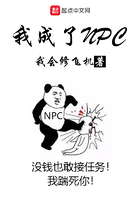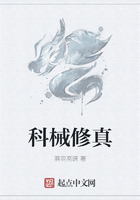Let us now follow the author in the enquiry,by what rules shall the Constitution be interpreted?Many of those which he has given are merely such as we apply to every instrument,and they do not,therefore,require any particular examination.The principal one,and that from which he deduces many others as consequences,is this:"It is to be construed as a frame or fundamental law of government,established by the people of the United States,according to their own free pleasure and sovereign will.In this respect,it is in no wise distinguishable from the constitutions of the State governments."That our Constitution is "a frame of government"will scarcely be denied by any one,and this,whether it be in its nature federal or consolidated.It is,also,as in every other constitution of government,"a fundamental law."It is the acknowledged basis of all federal power and authority,the sole chart by which federal officers are to direct their course.But all this leaves the enquiry still open,what is this fundamental law,what is the course indicated by the chart of federal power,and how is it to be ascertained?Judge Story seems to suppose that a full answer to this question may be found in the fact,that this frame or fundamental law of government was established by "the people of the United States,according to their free pleasure and sovereign will."If the fact were really so,it would undoubtedly exert an important influence,and would go far to justify his construction of the Constitution.We here discern the usefulness and necessity of that historical enquiry,which has just been finished.From that enquiry,we learn,distinctly and without doubt,that the Constitution was not established by "the people of the United States,"and,consequently,that it does not resemble,in that respect,the constitutions of the States.There is no such analogy between them,as will presently be shown,as to require that they should be construed by the same rules.The Constitution of the United States is to be considered as a compact or confederation between free,independent and sovereign States,and is to be construed as such,in all cases where its language is doubtful.
This is the leading and fundamental rule,from which the following may be deduced as consequences.
It is to be construed strictly.Judge Story supposes that the Constitution of the United States ought to receive as favorable a construction as those of the States;that it is to be liberally construed;that doubtful words are to be taken most strongly in favor of the powers of the Federal Government;
and that there is "no solid objection to implied powers."All these are but inferences from the great rule which he first laid down,to wit,that the Constitution is to be considered as a frame of government,established by the people of the United States.As that rule cannot apply,because the fact on which it was founded is not true,it would seem to follow,as a necessary consequence,that the inferences deduced from it cannot be allowed.Nevertheless,they shall receive a more particular consideration under the present enquiry.
According to the principles of all our institutions,sovereignty does not reside in any government whatever,neither State nor federal.Government is regarded merely as the agent of those who create it,and subject in all respects to their will.In the States the sovereign power is in the people of the States respectively;and the sovereign power of the United States would,for the same reason,be in "the people of the United States,"
if there were any such people,known as a single nation,and the framers of the Federal Government.We have already seen,however,that there are no such people,in a strict political sense,and that no such people had any agency in the formation of our Constitution,but that it was formed by the States,emphatically as such.It would be absurd,according to all principles received and acknowledged among us,to say that the sovereign power is in one party,and the power which is in the government is in another.
The true sovereignty of the United States,therefore,is in the States,and not in the people of the United States,nor in the Federal Government.
That government is but the agent through whom a portion of this sovereign power is exerted;possessing no sovereignty itself,and exerting no power,except such only as its constituents have conferred on it.In ascertaining what these powers are,it is obviously proper that we should look only to the grant from which they are derived.The agent can claim nothing for itself,and on its own account The Constitution is a compact,and the parties to it are each State,with each and every other State.The Federal Government is not a party,but is the mere creature of the agreement between the States as parties.Each State is both grantor and grantee,receiving from each and all the other States precisely what,in its turn,it concedes to each and all of them.The rule,therefore,that the words are to be taken most strongly in favor of the grantee,cannot apply,because,as each State is both grantor and grantee,it would give exactly as much as it would take away.The only mode,therefore,by which we may be certain to do no injustice to the intentions of the parties,is by taking their words as the true exponents of their meaning.
Judge Story thinks,however,that a more liberal rule ought to be adopted,in construing the Constitution of the United States,because "the grant inures solely and exclusively for the benefit of the grantor himself";
and therefore he supposes that "no one would deny the propriety of giving to the words of the grant a benign and liberal interpretation."Admit that it is so,and it would seem to follow that "the benefit of the grantor"
requires that we should take from him as little as possible,and that an "interpretation of the words of the grant"would not be "benign and liberal"















